
Elmina: A Historical Gem on Ghana's Coast
Elmina, a coastal town in Ghana, is a captivating destination rich in history and culture. Known for its pivotal role in the transatlantic slave trade, this small town offers a profound and moving experience for visitors. At the heart of Elmina lies the Elmina Castle, a UNESCO World Heritage Site, which stands as a stark reminder of the past. Built by the Portuguese in 1482, it is the oldest European building in existence south of the Sahara. Walking through its dungeons and halls, you can almost hear the echoes of history, providing a somber yet enlightening glimpse into the past. Beyond its historical significance, Elmina boasts beautiful beaches and vibrant local life. The town's fishing industry is a vital part of daily life, and visitors can witness the bustling activity at the fishing harbor. The colorful boats and energetic market scenes paint a picture of a community that thrives amid its historical backdrop. For those interested in local culture, the annual Bakatue Festival, celebrating the fishing season, is a lively event filled with traditional music, dance, and rituals. Elmina is not just about history and culture; it also offers opportunities for relaxation and exploration. The nearby Kakum National Park, with its famous canopy walkway, provides an exciting adventure into Ghana's lush rainforest. Whether you are a history enthusiast, a culture seeker, or an adventure lover, Elmina has something to offer every traveler. Its unique blend of past and present makes it a must-visit destination in Ghana.
Local tips in Elmina
- Visit Elmina Castle early in the morning to avoid crowds and fully absorb the historical atmosphere.
- Take a guided tour to gain deeper insights into the history and significance of Elmina Castle.
- Don't miss the Bakatue Festival in July for a unique cultural experience.
- Wear comfortable shoes for exploring the town and the castle.
- Combine your visit with a trip to Kakum National Park for a diverse experience.
Elmina: A Historical Gem on Ghana's Coast
Elmina, a coastal town in Ghana, is a captivating destination rich in history and culture. Known for its pivotal role in the transatlantic slave trade, this small town offers a profound and moving experience for visitors. At the heart of Elmina lies the Elmina Castle, a UNESCO World Heritage Site, which stands as a stark reminder of the past. Built by the Portuguese in 1482, it is the oldest European building in existence south of the Sahara. Walking through its dungeons and halls, you can almost hear the echoes of history, providing a somber yet enlightening glimpse into the past. Beyond its historical significance, Elmina boasts beautiful beaches and vibrant local life. The town's fishing industry is a vital part of daily life, and visitors can witness the bustling activity at the fishing harbor. The colorful boats and energetic market scenes paint a picture of a community that thrives amid its historical backdrop. For those interested in local culture, the annual Bakatue Festival, celebrating the fishing season, is a lively event filled with traditional music, dance, and rituals. Elmina is not just about history and culture; it also offers opportunities for relaxation and exploration. The nearby Kakum National Park, with its famous canopy walkway, provides an exciting adventure into Ghana's lush rainforest. Whether you are a history enthusiast, a culture seeker, or an adventure lover, Elmina has something to offer every traveler. Its unique blend of past and present makes it a must-visit destination in Ghana.
When is the best time to go to Elmina?
Iconic landmarks you can’t miss
Elmina Castle
Explore the haunting beauty of Elmina Castle, a UNESCO World Heritage Site, and witness Ghana's poignant history come alive amidst stunning coastal views.

Coconut Grove Beach Resort
Discover the beauty of Ghana's coastline at Coconut Grove Beach Resort, where relaxation meets adventure in a tropical paradise.

Elmina - Java Museum
Discover the cultural treasures of Elmina at the Java Museum, where history comes alive and heritage is celebrated in the heart of Ghana.
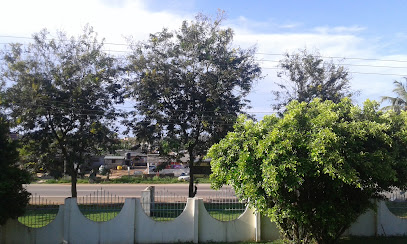
Ahomka Fie
Experience the perfect blend of culture and modern amenities at Ahomka Fie, Elmina's premier event venue, showcasing Ghana's rich heritage.
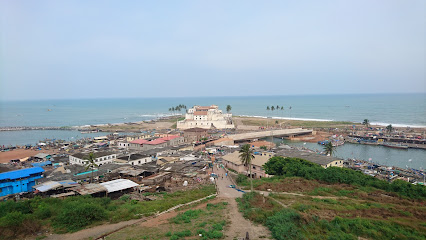
Coconut Grove Bridgehouse
Experience the charm of Elmina at Coconut Grove Bridgehouse, where comfort meets cultural richness in a stunning coastal setting.

Elmina Boat Cruise
Discover the stunning coastline and rich history of Elmina through an unforgettable boat cruise experience, perfect for tourists seeking adventure and culture.
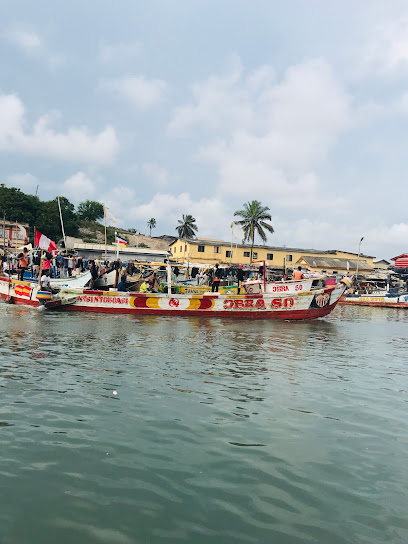
Elmina Fish Market
Experience the vibrant Elmina Fish Market, where fresh catches meet rich Ghanaian culture in a bustling coastal hub.
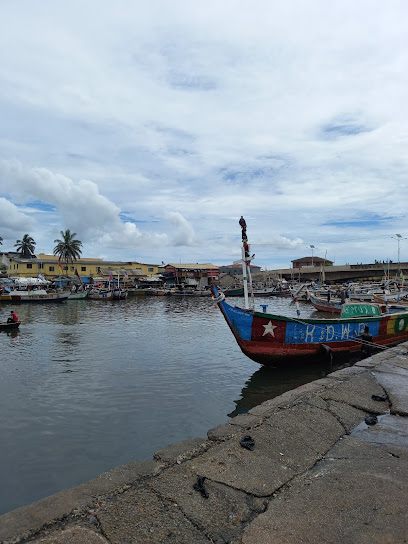
Elmina Fishing Harbour
Explore the lively Elmina Fishing Harbour, where traditional fishing meets vibrant community life in picturesque Ghana.
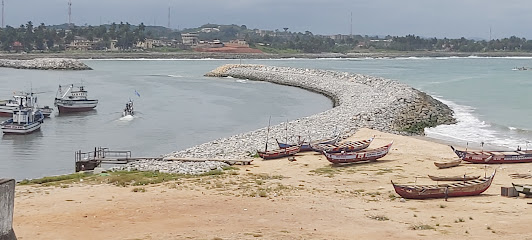
Elimina
Discover Elmina Castle, a UNESCO World Heritage Site, rich in history and breathtaking ocean views, reflecting Ghana's complex past.
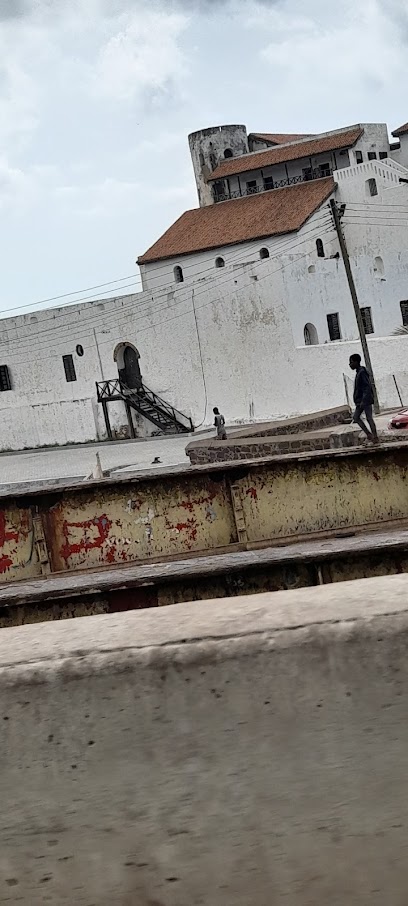
The Church of Jesus Christ of Latter-day Saints
Visit the Church of Jesus Christ of Latter-day Saints in Elmina for a unique spiritual experience near the historic Elmina Castle, connecting tourists and locals alike.
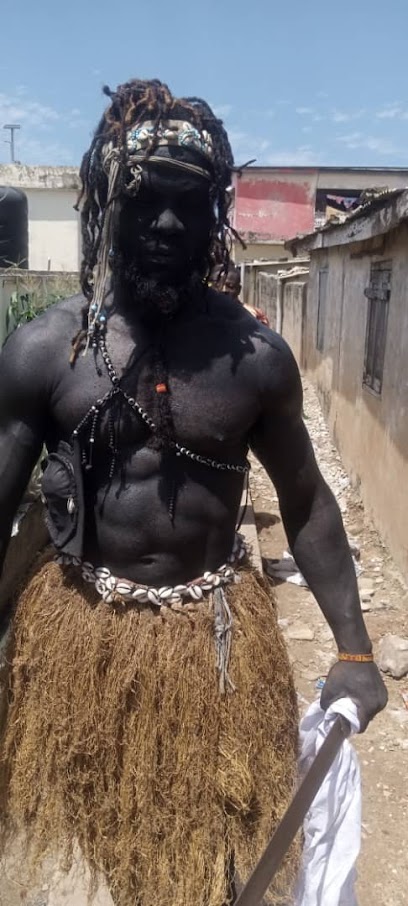
Brand Elmina
Explore Elmina's rich history and vibrant culture with tailored tours from Brand Elmina, your local travel expert in Ghana.
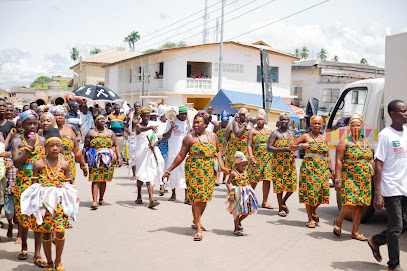
Unmissable attractions to see
Kwame Nkrumah Hall Park
Experience the serenity of Kwame Nkrumah Hall Park, a lush green oasis in Cape Coast, perfect for relaxation and exploration.
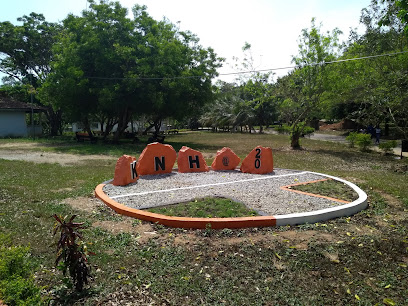
Antonio Garden
Experience the tranquility of nature at Antonio Garden, a lush botanical paradise in Cape Coast, Ghana, perfect for relaxation and exploration.
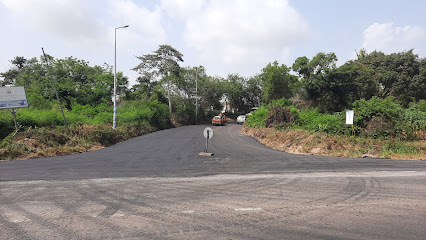
Bonkus Park
Experience the tranquility of Bonkus Park, a serene green space in Cape Coast, perfect for relaxation, family outings, and enjoying nature's beauty.

OLA Roman Catholic Park
Explore OLA Roman Catholic Park in Cape Coast, a serene escape featuring lush gardens and a rich cultural backdrop for tourists seeking tranquility.
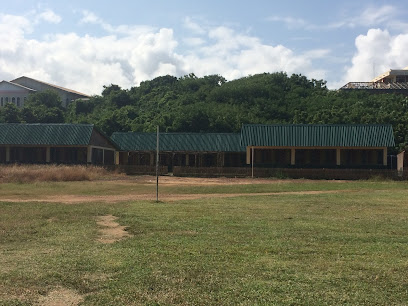
Jubilee Park, Cape Coast
Discover Jubilee Park in Cape Coast: a serene green haven for relaxation, picnics, and cultural experiences amidst vibrant local life.
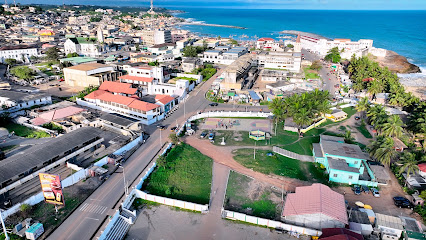
Akotokyir magic park
Discover the serene beauty of Akotokyir Magic Park in Cape Coast, where nature and tranquility meet for an unforgettable outdoor experience.
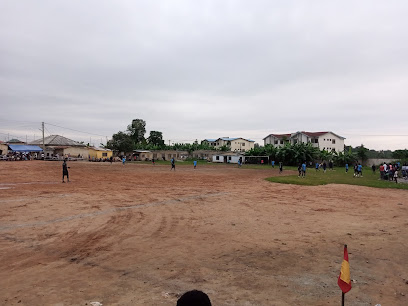
Amotoe
Explore Amotoe in Komenda, Ghana: A captivating tourist attraction showcasing rich culture, scenic beauty, and warm local hospitality.
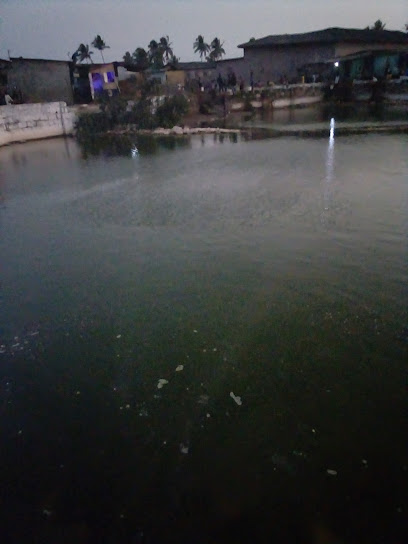
UCC garden
Discover tranquility at UCC Garden in Cape Coast, a lush retreat within the University of Cape Coast, perfect for relaxation and exploration.
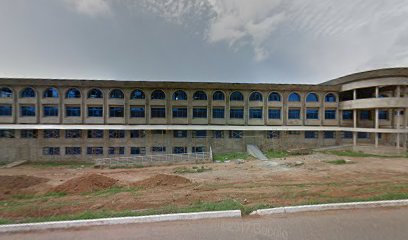
Hallelujah Beach
Experience the tranquility and natural beauty of Hallelujah Beach in Kormantse, a hidden gem perfect for relaxation and adventure.
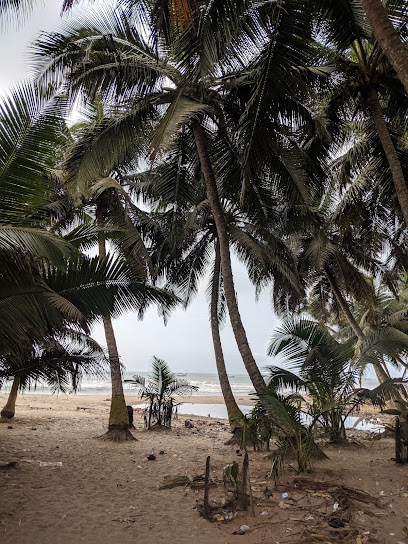
Enyan Pepease
Explore Enyan Pepease in Mankessim, Ghana: A cultural attraction rich in heritage, stunning landscapes, and authentic local experiences.
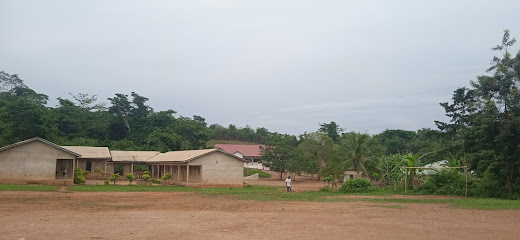
ROWAN
Experience tranquility and outdoor fun at Rowan Park, a scenic gem in Cape Coast, perfect for relaxation and family activities amidst nature.
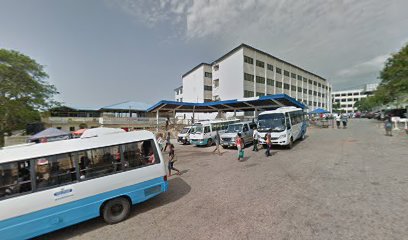
Essential places to dine
Mabel's Table
Discover authentic Ghanaian cuisine at Mabel's Table in Elmina – where flavor meets tradition in every delightful dish.
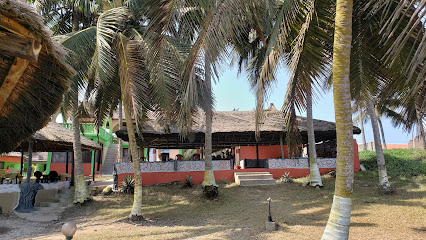
One Africa Health Resort
Experience ultimate relaxation at One Africa Health Resort - where luxury meets nature on Ghana's stunning coast.
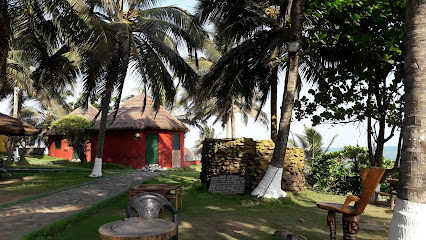
African Pot
Discover authentic Ghanaian cuisine at African Pot in Elmina - where rich flavors meet warm hospitality.
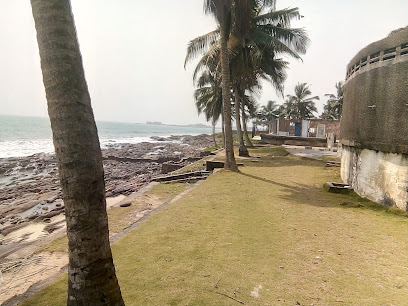
Gramsddel J Restaurant
Experience authentic Ghanaian cuisine at Gramsddel J Restaurant in Elmina - where every meal tells a story.
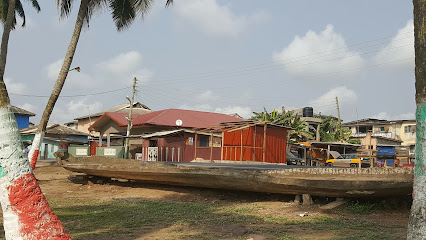
G. & I. Spot
Discover authentic Ghanaian cuisine at G. & I. Spot near Elmina Junction - where delicious food meets warm hospitality.
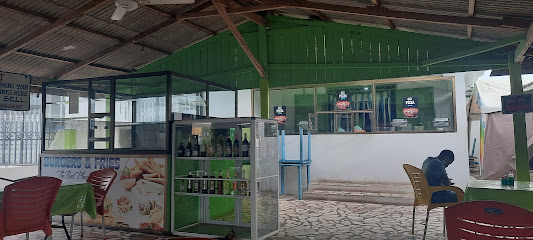
Anomansa Restaurant
Experience authentic Ghanaian cuisine at Anomansa Restaurant near Elmina Castle – where every dish tells a story.
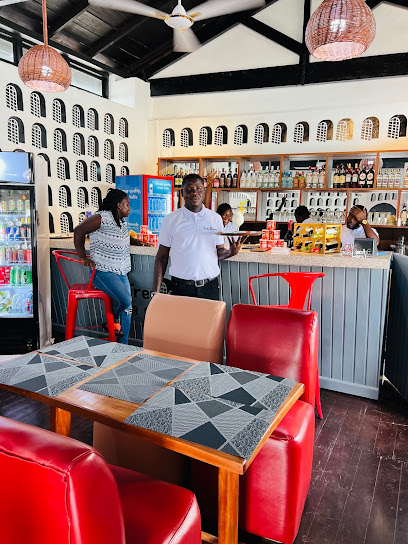
Lemon Beach Restaurant
Experience the perfect blend of local flavors and stunning coastal views at Lemon Beach Restaurant in Elmina.
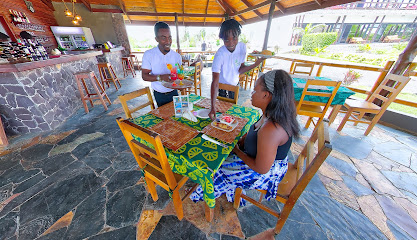
Araba Chop Bar
Experience authentic Ghanaian cuisine at Araba Chop Bar in Elmina – where local flavors meet vibrant culture.
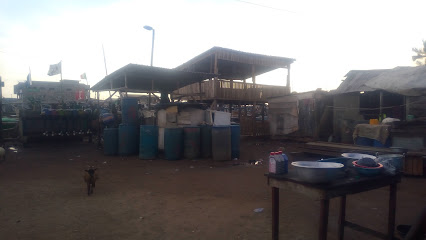
Pat Spot
Discover authentic Ghanaian grilled cuisine at Pat Spot in Elmina – where every bite tells a story!
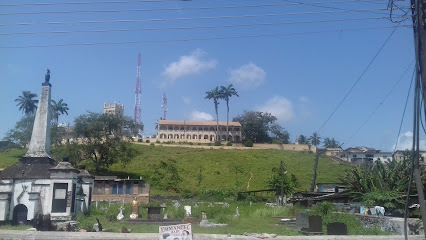
Markets, malls and hidden boutiques
God Is Alive Supermarket
Explore the flavors of Ghana at God Is Alive Supermarket, where fresh produce and local goods come together in a vibrant shopping experience.
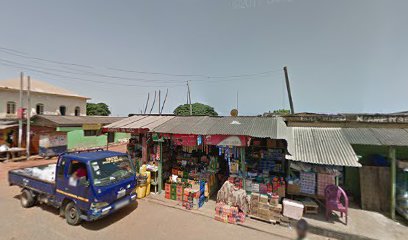
Liahona Fishries
Discover the vibrant flavors of Elmina at Liahona Fisheries, a bustling shopping mall showcasing the best of local seafood and culture.
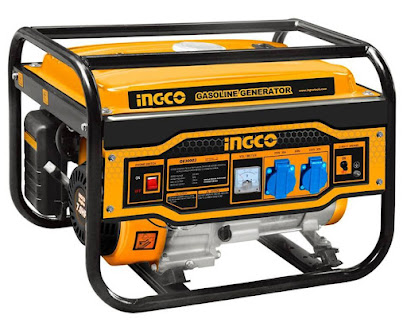
Wiseway Supermarket
Explore Wiseway Supermarket in Elmina for a unique shopping experience filled with local flavors and international products.
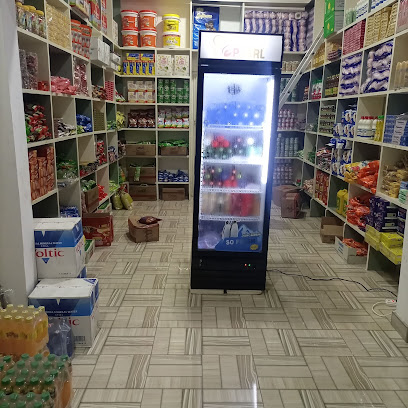
Blackstar Bookshop
Discover a treasure trove of literature at Blackstar Bookshop in Elmina, Ghana, where every book tells a story and invites exploration.
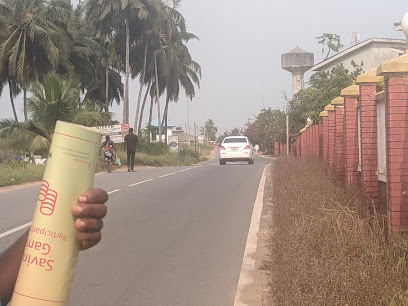
HanasClothing
Explore HanasClothing in Elmina for unique Ghanaian fashion that captures the spirit of the region and perfect souvenirs for your travels.
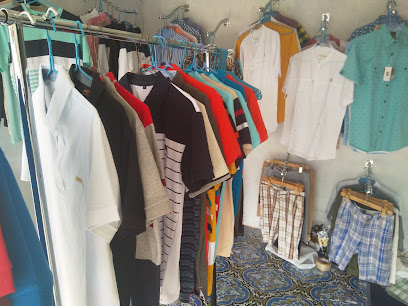
Razor King Saloon
Discover the unique blend of hair care and local fashion at Razor King Saloon, Elmina's hidden gem for tourists seeking relaxation and style.
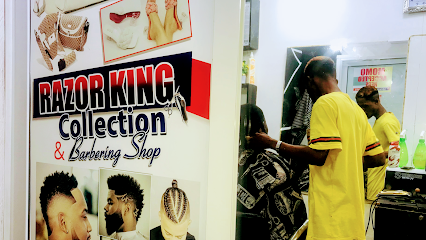
Seaside Souvenirs Shop
Discover unique Ghanaian crafts at Seaside Souvenirs Shop, where art meets culture in the heart of Elmina.
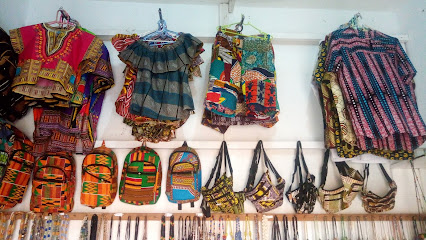
King richer arena
Discover the essence of Elmina at King Richer Arena, a vibrant general store showcasing local crafts and authentic Ghanaian culture.

Pee & Ma Paradise Boutique
Explore vibrant fashion and unique clothing at Pee & Ma Paradise Boutique in Elmina, where tradition meets modern style.
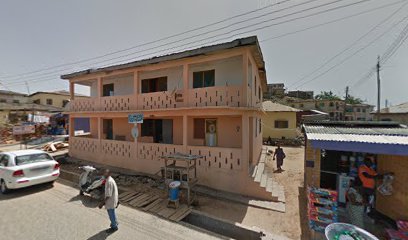
Green Pebbles Trading
Explore Green Pebbles Trading in Elmina for a unique shopping experience filled with authentic Ghanaian crafts and everyday essentials.
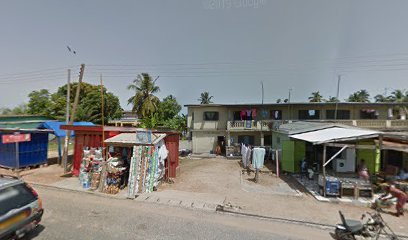
Emmanuel Electricals
Explore the best of electronics at Emmanuel Electricals in Elmina, where quality meets affordability in a vibrant shopping experience.
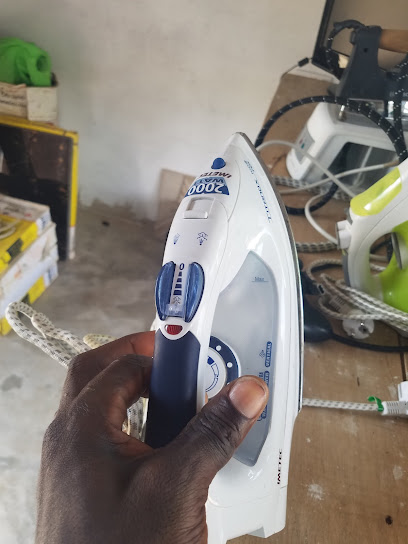
Woode and sons enterprise
Explore the vibrant tastes of Elmina at Woode and Sons Enterprise, your local grocery haven with fresh produce and unique artisanal finds.
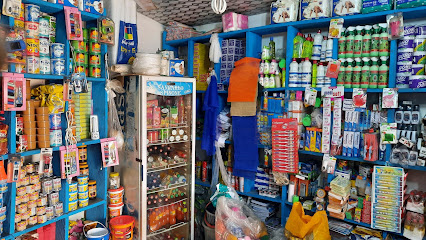
EMMABE LTD(AKURABU)
Explore EMMABE LTD in Elmina for unique home goods that reflect Ghanaian culture and craftsmanship, perfect for souvenirs and home decor.
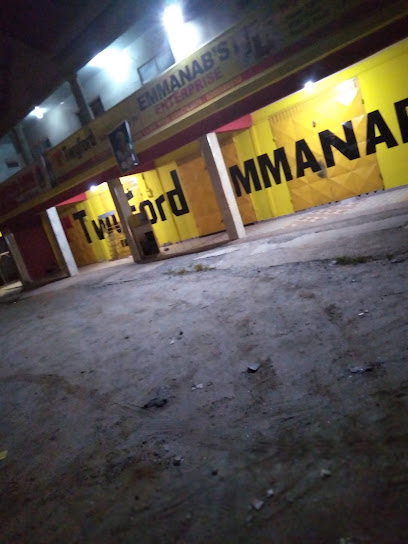
GOKE OFFICE
Explore GOKE OFFICE in Elmina for unique local products and souvenirs that embody the vibrant culture of Ghana.
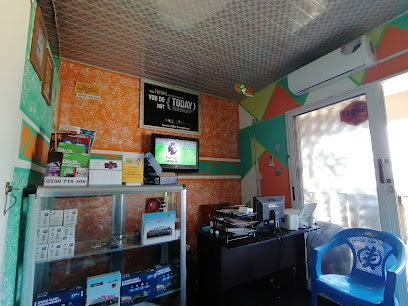
Patrick
Explore Patrick's Store in Elmina for authentic Ghanaian crafts, textiles, and souvenirs that celebrate the vibrant local culture.
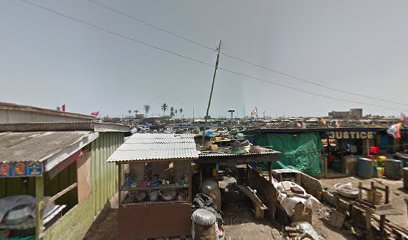
Essential bars & hidden hideouts
Mabel's Table
Experience authentic Ghanaian cuisine at Mabel's Table in Elmina, where flavor meets culture in a warm and welcoming atmosphere.
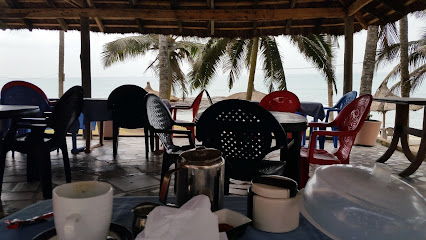
Anomansa Restaurant
Experience authentic Ghanaian cuisine at Anomansa Restaurant, located near the historic Elmina Castle, where flavor meets culture.
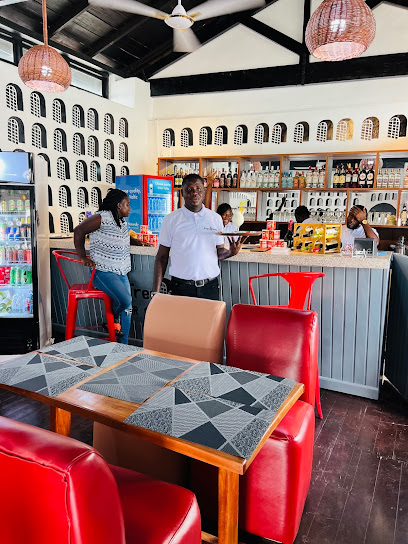
SHIPYARD Bar
Discover the vibrant nightlife of Cape Coast at SHIPYARD Bar, a perfect blend of local charm and refreshing drinks.
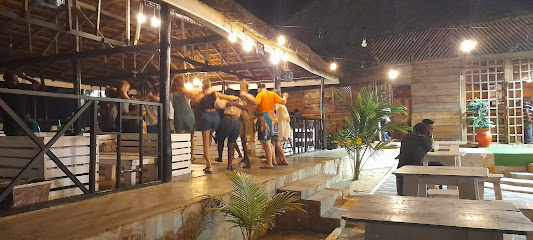
Lemon Beach Restaurant
Discover the flavors of Ghana at Lemon Beach Restaurant, where fresh seafood meets stunning ocean views in Elmina.
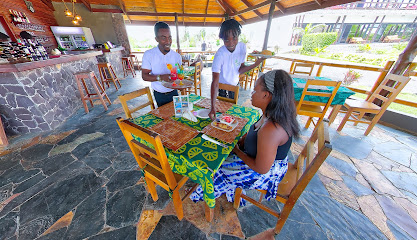
Nippon City Pub
Discover the lively Nippon City Pub in Elmina, where local culture meets a vibrant atmosphere for an unforgettable evening.
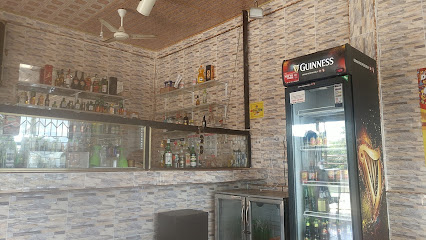
Ngwa Night Club
Experience the heart of Elmina's nightlife at Ngwa Night Club, where vibrant music meets friendly faces in a memorable atmosphere.
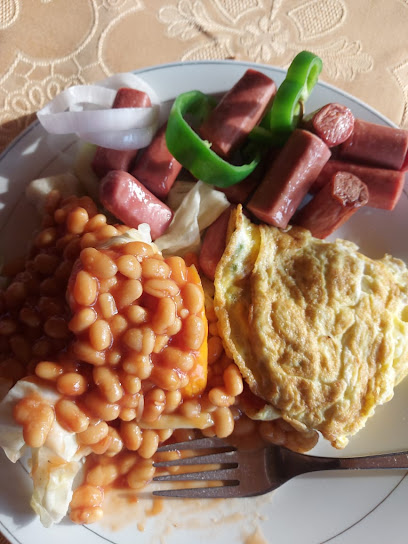
Araba Chop Bar
Discover the authentic taste of Ghana at Araba Chop Bar, where local flavors meet vibrant culture in the heart of Elmina.
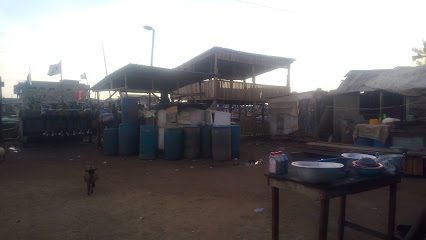
Rasta Bar
Experience the vibrant coastal charm of Rasta Bar in Cape Coast, where delicious local drinks and fresh tilapia await you.
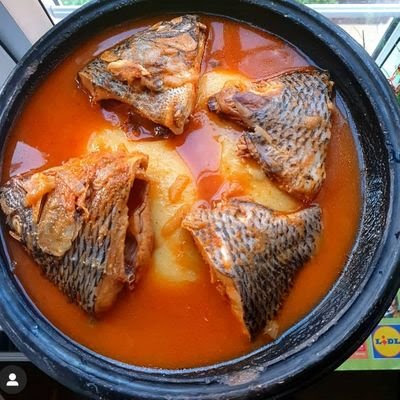
Top View Bar
Experience breathtaking views and local culture at Top View Bar in Elmina, a perfect retreat for travelers seeking relaxation and vibrant scenery.
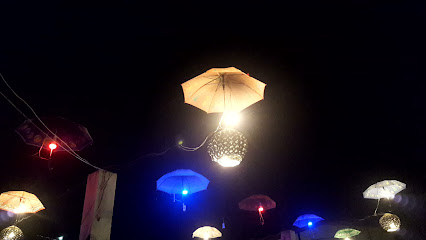
Pat Spot
Experience the best of Elmina's grill scene at Pat Spot, where delicious flavors and a lively atmosphere await every visitor.
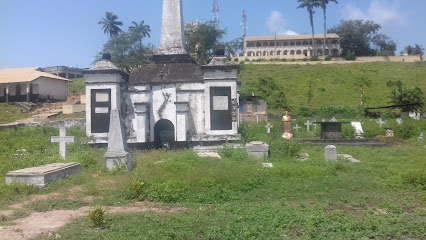
Apex Bar & Restaurant
Savor the best of local and international cuisine at Apex Bar & Restaurant in the heart of Elmina, Ghana.
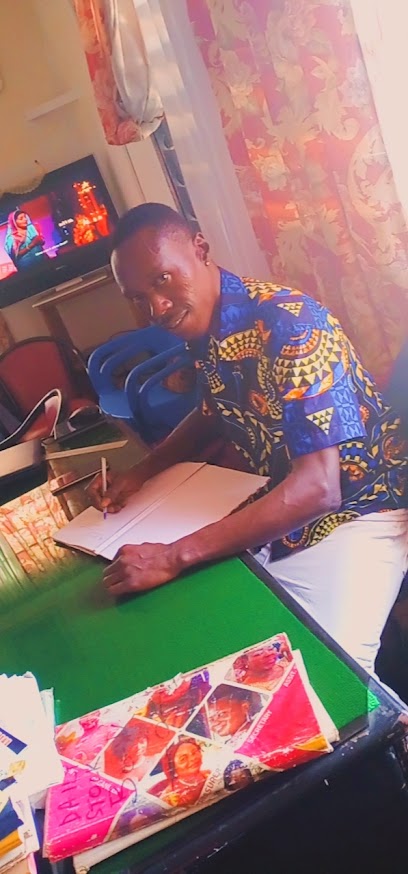
SUPERIOR OIL AND RESTAURANT 0249206869
Experience the authentic flavors of Ghana at Superior Oil and Restaurant in Elmina, where every meal tells a story.

Seatop Bar
Discover the vibrant atmosphere and stunning ocean views at Seatop Bar in Elmina, a perfect retreat for relaxation and local culture.
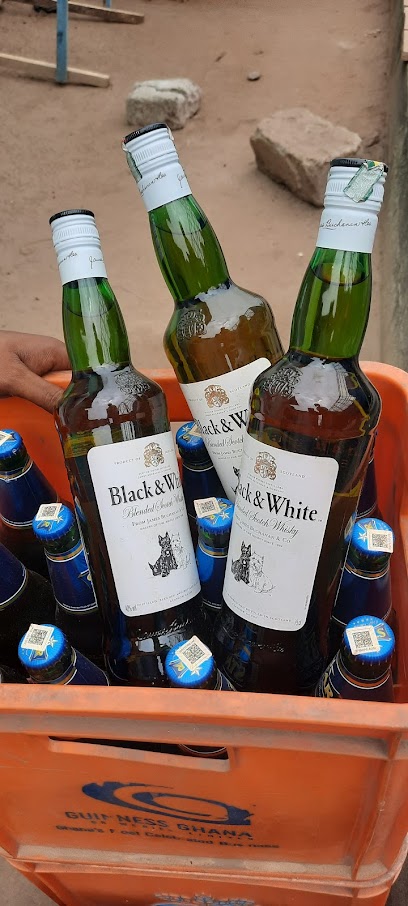
Pub Milla Elmina
Discover the lively atmosphere of Pub Milla Elmina, where local drinks and culture come together in a delightful pub experience.
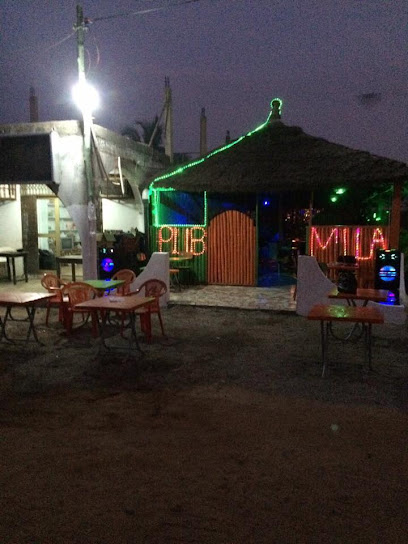
Work & Happiness Bar
Experience the vibrant culture of Elmina at Work & Happiness Bar - your go-to spot for relaxation and local flavors.

Local Phrases about Elmina
-
- HelloAane
[ah-neh] - GoodbyeKaa kɛ
[kaah keh] - YesAane
[ah-neh] - NoDaabi
[dah-bee] - Please/You're welcomeMesere
[meh-seh-reh] - Thank youMedaase
[meh-dah-seh] - Excuse me/SorryAfehyia pa
[ah-feh-hee-ah pa] - How are you?Wofaase?
[woh-fah-seh] - Fine. And you?Maakye. Na wo nso?
[mah-chee. nah woh en-soh] - Do you speak English?Wo nso Eŋlisi kɛkɛ?
[woh en-soh en-glee-see keh-keh] - I don't understandMe nfa me ho
[meh en-fah meh hoh]
- HelloAane
-
- I'd like to see the menu, pleaseMinni menu no, mesere
[mee-nee meh-noo noh, meh-seh-reh] - I don't eat meatMe nnya nkuruma
[meh en-nyah en-koo-roo-mah] - Cheers!Agya
[ah-jah] - I would like to pay, pleaseMepa wo kyɛw
[meh-pah woh chay-oo]
- I'd like to see the menu, pleaseMinni menu no, mesere
-
- Help!Boa me
[boh-ah meh] - Go away!Ku
[koo] - Call the Police!Kyerɛ asɛm polic
[cheh-reh ah-sehm poh-lice] - Call a doctor!Kyerɛ asɛm dokita
[cheh-reh ah-sehm doh-kee-tah] - I'm lostM'ani gye
[mah-nee jeh] - I'm illMe de
[meh deh]
- Help!Boa me
-
- I'd like to buy...Minni...
[mee-nee] - I'm just lookingMepɛ sɛ menntumi ɛbɛyɛ
[meh-peh seh men-too-mee eh-beh-yeah] - How much is it?Nnwontumi yɛfrɛ no akyi?
[nnoh-wohn-too-mee yeah-freh noh ah-chee] - That's too expensiveƐyɛ too bi
[eh-yeh too bee] - Can you lower the price?Wode no kakraa
[woh-deh noh kah-krah]
- I'd like to buy...Minni...
-
- What time is it?Agyei a enyɛ
[ah-jay ah en-yeh] - It's one o'clockBotae
[boh-tay] - Half past (10)Ahyease
[ah-hee-ah-seh] - MorningAnɔpa
[ah-noh-pah] - AfternoonAwia
[ah-wee-ah] - EveningAnadwo
[ah-nah-dwoh] - YesterdayNnantem
[nyahn-tehm] - TodayNnɛ
[nyeh] - TomorrowƐfie
[eh-fee-eh] - 1Baako
[bah-koh] - 2Abɛ
[ah-beh] - 3Anɔ
[ah-noh] - 4Anan
[ah-nahn] - 5Anum
[ah-noom] - 6Afia
[ah-fee-ah] - 7Ason
[ah-sohn] - 8Awɔn
[ah-wohn] - 9Idu
[ee-doo] - 10Iɛdɔ
[ee-eh-doh]
- What time is it?Agyei a enyɛ
-
- Where's a/the...?Ɛhe a...?
[eh-heh ah] - What's the address?Yɛfrɛ ase
[yeah-freh ah-seh] - Can you show me (on the map)?Wode me so (anan)
[woh-deh meh soh (ah-nahn)] - When's the next (bus)?Ɛkyiri a na ɛwɔ
[eh-chee-ree ah nah eh-woh] - A ticket (to ....)Kɔtɔkɔ
[koh-toh-koh]
- Where's a/the...?Ɛhe a...?
History of Elmina
-
Elmina, originally known as 'Anomansah' or the 'inexhaustible supply of water,' was founded in 1482 by the Portuguese. They established it as a trading post and named it São Jorge da Mina. The location was strategically chosen for its proximity to the abundant gold resources of the Akan region, making it a significant hub for the gold trade.
-
Elmina Castle, also known as São Jorge da Mina Castle, is one of the oldest European buildings in sub-Saharan Africa. Constructed by the Portuguese in 1482, it served initially as a fortified trading post. Over the centuries, it evolved into one of the most infamous slave forts, playing a central role in the transatlantic slave trade. The castle's dungeons, governor's quarters, and battlements offer a haunting glimpse into this dark chapter of history.
-
In 1637, the Dutch seized Elmina Castle from the Portuguese after a fierce battle. They renamed it Fort Coenraadsburg. The Dutch West India Company took over the lucrative gold and slave trades, establishing Elmina as the capital of the Dutch Gold Coast. The Dutch made significant architectural modifications to the castle, fortifying it further to withstand attacks.
-
Elmina came under British control in 1872 following the Anglo-Dutch Treaty of 1871. The British incorporated Elmina into their Gold Coast colony, marking the end of nearly 300 years of Dutch influence. The British era introduced new administrative practices and infrastructure developments, further shaping Elmina's urban landscape.
-
Elmina is rich in cultural heritage, with traditions that have been preserved through generations. The town is known for its vibrant festivals, such as the Edina Bakatue Festival, which celebrates the beginning of the fishing season. The festival features colorful parades, traditional music, and dance, reflecting the community's deep connection to both the sea and their ancestors.
-
Throughout its history, Elmina has been a critical economic center. From its early days as a gold trading hub to its role in the slave trade, the town has continually adapted to economic shifts. Today, Elmina is a bustling fishing town, with its harbor providing livelihoods for many of its residents. The local markets are a testament to the town’s enduring economic vitality, offering a variety of fresh seafood and artisanal crafts.
-
In contemporary times, Elmina balances its historical legacy with modern development. The town attracts numerous tourists each year, drawn by its historical sites and cultural festivals. Efforts are ongoing to preserve its heritage buildings and promote sustainable tourism. Elmina's unique blend of history, culture, and economic activity continues to make it a fascinating destination.
Elmina Essentials
-
Elmina is located on the southern coast of Ghana, in the Central Region. The nearest international airport is Kotoka International Airport in Accra, approximately 150 kilometers away. From Accra, you can take a taxi, hire a private car, or use a bus service like STC or VIP to reach Elmina. The journey typically takes around 2 to 3 hours, depending on traffic.
-
Once in Elmina, you can get around by taxis, which are readily available and relatively inexpensive. For short distances, you can use shared taxis (tro-tros) that operate on fixed routes. Walking is also a viable option for exploring the town center and its attractions. Bicycle rentals are available for those who prefer a more active mode of transportation.
-
The official currency in Ghana is the Ghanaian Cedi (GHS). Credit cards are accepted in some hotels, restaurants, and shops, but it is advisable to carry cash, especially in smaller establishments and local markets. ATMs are available in Elmina, but ensure you have enough cash as not all places accept cards.
-
Elmina is generally safe for tourists, but standard precautions should be taken. Avoid walking alone at night in unfamiliar areas and keep an eye on your belongings in crowded places. Areas with higher crime rates targeting tourists include some parts of the town's outskirts. Stay vigilant and aware of your surroundings.
-
In case of emergency, dial 112 for immediate assistance. The local police station and medical facilities are available in Elmina. It is recommended to have travel insurance that covers medical emergencies. For minor health issues, there are pharmacies in town where you can purchase over-the-counter medications.
-
Fashion: Do dress modestly, especially when visiting religious sites. Avoid wearing very revealing clothing. Religion: Do respect local customs and traditions. Always remove your hat when entering religious sites. Public Transport: Do be respectful and give up your seat to elderly passengers. Don't eat or drink on public transport. Greetings: Do greet people with a handshake. A smile and a friendly 'Akwaaba' (welcome) go a long way. Eating & Drinking: Do try local delicacies and accept food offerings graciously. Don't refuse hospitality, as it is considered impolite.
-
To experience Elmina like a local, visit the local markets where you can buy fresh produce and traditional Ghanaian goods. Engage with locals, as they are often friendly and willing to share stories about the town's history and culture. Don't miss visiting Elmina Castle, a UNESCO World Heritage Site, and the bustling fishing harbor. For a unique experience, attend a local festival to see traditional music and dance performances.
Nearby Cities to Elmina
-
Things To Do in Sekondi-Takoradi
-
Things To Do in Takoradi
-
Things To Do in Accra
-
Things To Do in Koforidua
-
Things To Do in Kumasi
-
Things To Do in Ho
-
Things To Do in Sunyani
-
Things To Do in Kpalimé
-
Things To Do in Abidjan
-
Things To Do in Lomé
-
Things To Do in Notse
-
Things To Do in Aneho
-
Things To Do in Lokossa
-
Things To Do in Atakpamé
-
Things To Do in Ouidah








